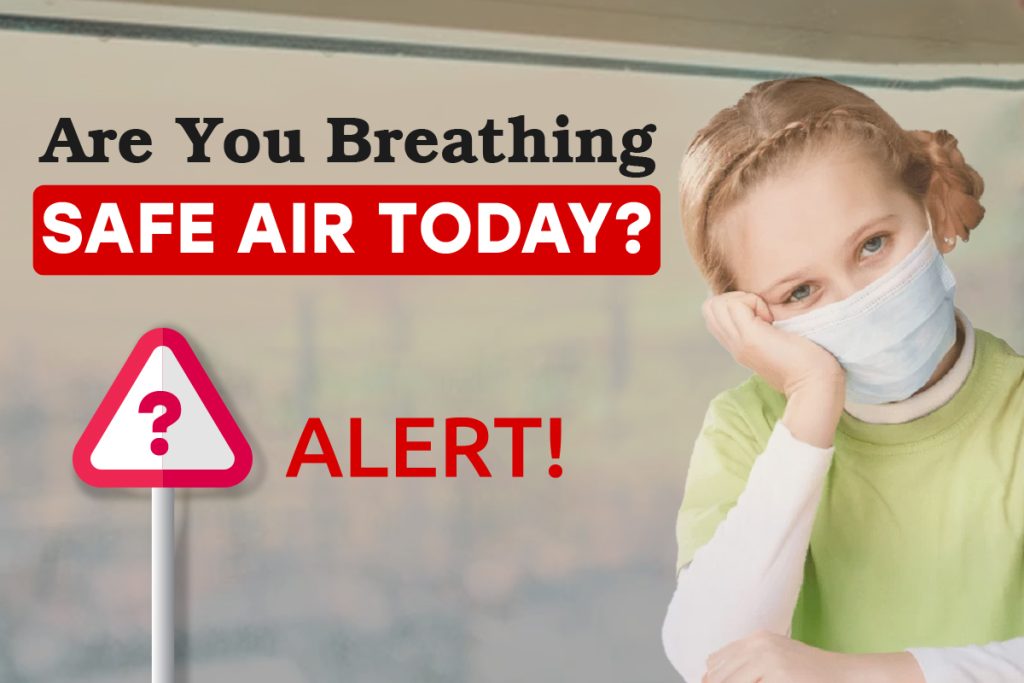Are You Breathing Safe Air Today in Lahore Pakistan? This question is more relevant than ever as Lahore continues to face high levels of air pollution. With an alarming AQI and pollutants like PM2.5 posing serious health risks, it’s crucial for residents to understand the impact of air quality on their well-being. Knowing the current air quality and taking the necessary precautions can make a significant difference in protecting your health.
Understanding Air Quality and Its Importance
Air quality directly impacts our health, yet it’s something many people overlook. Poor air quality can affect not only respiratory health but also cardiovascular and overall well-being. With rising pollution levels globally, it’s important to know if the air we breathe is safe.
What is the Air Quality Index (AQI)?
The Air Quality Index (AQI) is a measure used worldwide to communicate how polluted the air currently is or how polluted it’s forecasted to become. AQI levels range from good to hazardous, helping people understand when it’s safe to go outside or when precautions are needed.
- Good (0-50): Air quality is safe for all.
- Moderate (51-100): Safe for most, but sensitive groups should limit exposure.
- Unhealthy for Sensitive Groups (101-150): Older adults, children, and those with respiratory issues should limit outdoor activities.
- Unhealthy (151-200): Everyone may begin to feel health effects, sensitive groups more severely.
- Very Unhealthy (201-300): Health alert for everyone; avoid outdoor activities.
- Hazardous (301+): Serious health effects for all; avoid any outdoor exposure.
Common Pollutants in the Air
Several pollutants contribute to poor air quality. Knowing these pollutants can help you understand what you’re breathing and why it matters.
- PM2.5 and PM10: These fine particles penetrate deep into the lungs and can enter the bloodstream, causing respiratory and cardiovascular problems.
- Ozone (O3): Ground-level ozone is harmful to lung tissue, especially during exercise or outdoor activities.
- Nitrogen Dioxide (NO2): Emitted from vehicles and power plants, it irritates the respiratory system and can lead to long-term health effects.
- Sulfur Dioxide (SO2): Often from burning fossil fuels, it can cause respiratory issues and aggravate existing lung conditions.
- Carbon Monoxide (CO): This invisible gas reduces oxygen flow in the bloodstream and can be particularly dangerous in high concentrations.
How to Check Your Local Air Quality
Keeping track of your local air quality is now easier than ever. Many government and environmental websites, like AirNow or the World Air Quality Index, provide real-time AQI updates. Are You Breathing Safe Air Today in Lahore Pakistan? You can also download mobile apps that send alerts about changes in air quality in your area.
Health Risks of Breathing Poor Air
Breathing polluted air can lead to immediate and long-term health issues. Here’s how air pollution can affect different aspects of health:
- Short-Term Effects: Coughing, sneezing, irritation in eyes, nose, and throat, shortness of breath, and fatigue.
- Long-Term Effects: Chronic respiratory diseases like asthma, bronchitis, reduced lung function, cardiovascular diseases, and even lung cancer.
- Vulnerable Groups: Children, the elderly, pregnant women, and those with pre-existing health conditions are particularly at risk. For them, exposure to poor air quality can lead to severe health complications.
Tips to Protect Yourself on High AQI Days
When air quality is poor, take these precautions to minimize exposure and protect your health:
Stay Indoors:
Limit outdoor activities, especially physical exercise, to reduce inhaling pollutants.
Use Air Purifiers:
Air purifiers with HEPA filters can remove pollutants from indoor air, creating a safer environment. Explore options for air quality appliances on CyberMart.pk’s Heating, Cooling, and Air Quality section.
Wear Masks Outside:
If you must go outdoors, wear a high-quality mask, such as an N95 or KN95, to filter out harmful particles. CyberMart.pk offers professional-grade KN95 masks that provide excellent protection against airborne pollutants.
Close Windows and Doors:
Prevent polluted air from entering your home by keeping windows and doors shut, especially during peak pollution times.
Avoid High-Traffic Areas:
If you need to be outside, avoid areas with heavy traffic as pollution levels are typically higher there.
Why Clean Air is Essential for Well-being
Clean air is fundamental to a healthy life. It reduces the risk of diseases, supports lung health, and improves quality of life. Fresh air helps improve mental clarity, reduce stress levels, and promote better sleep. By ensuring that the air we breathe is clean, we’re investing in our long-term health and well-being.
A Call to Action: How You Can Help Improve Air Quality
While individual actions can’t solve air pollution entirely, collective efforts can make a difference. Here’s how you can contribute to cleaner air:
- Use Public Transport or Carpool: Reducing the number of vehicles on the road helps lower emissions.
- Limit Use of Fossil Fuels: Opt for cleaner energy sources whenever possible, such as solar or wind power.
- Support Green Spaces: Plant trees and support local green initiatives to improve air quality.
- Raise Awareness: Educate others about the importance of clean air and encourage community actions.
Conclusion
Are You Breathing Safe Air Today in Lahore Pakistan? As pollution levels continue to rise, staying informed and proactive is essential for everyone’s health. By checking the AQI, taking steps to reduce exposure, and supporting efforts for cleaner air, we can help protect ourselves and our community. Clean air is vital for a healthier future, and together, we can work toward making it a reality.



